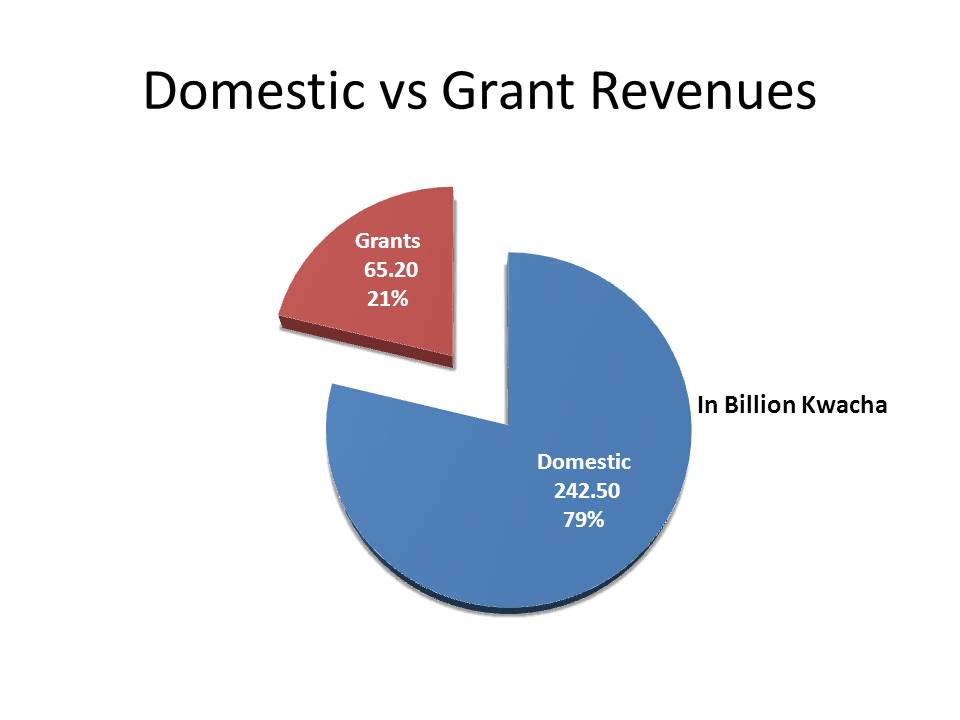Thanks Ken, but it is not a Zero Deficit Budget!
Published on June 9, 2011 at 4:39 PM by FACE OF MALAWI
The Honourable Minister of Finance, Mr Ken Kandodo on Friday, June 3, 2011 delivered the 2011/12 Fiscal Year budget. Like all people and patriots of goodwill, we join the honourable members of the August house, who will in the next few weeks be congratulating him for a job well done. People familiar to this writer will wonder where this sudden change of heart has come from. Wasn’t this guy, they will ask, not too long ago, parading as an angel of doom? Read on.
Just like it was argued in “Zero Budget Deficit: A Road to Economic Autonomy or Futile Exercise” carried by Maravi Post; contrary to what Professor Dr. Bingu wa Mutharika announced and wanted us to believe, the Finance Minister has not delivered a Zero Deficit Budget; sanity has prevailed, hence the felicitations. But we could have done better, if there was a cushion to soften the fall – should things not turn out as predicted. Rational actions and coherent decisions are today, like fuel and forex, intermittent in Malawi.
To ensure that we are all at the same wavelength, it is necessary to make a slight detour into the technicalities of what a budget is, what a deficit budget is and what a zero deficit budget is and is not.
- A budget is essentially a plan expressed in quantitative terms.
- A deficit budget is a budget that plans more expenditure than government can raise from local sources without borrowing (local or internationally) or begging (seeking grants).
- A zero deficit budget in the context of government, is budget in which Government’s (own) planned income equals or is greater than planned expenses. In this case, the Government would not factor into the budget grants or loans.
The Budget delivered on Friday June 3, 2011 pegged at K307.7 billion is funded thus: K242.5 billion Domestic Revenues (79 percent) and the balance of K65 billion (21 percent) Grants. Going by the definitions above, is it at all a zero deficit budget? Of course not, and that is why Ken Kandodo is the local hero today. Either Ken Kandodo has defied Bingu, or Bingu, in India and at Pacific Western, did not grasp the whole concept of zero deficit budgeting very well. Everyone can make his or her own conclusions.
Chart 1: Proportion of Domestic Revenue to Grant revenue in 2011/12 Budget 
The good news is that if the reduced dependence in donor funding shown by the reduced proportion of grants to the overall budget is sustained over a number of years, one day Ken Kandodo or whosever will be the Finance Minister at that time, will table a genuine zero deficit budget. Where is this optimism coming from? Assiuming that Malawians accept the heavy taxes that have come with the “zero budget deficit” (that is not a zero-deficit-budget at all), and that this government somehow survives an “egyptization” IF the Government empowers the people to produce more and therefore be able to pay even more taxes, in time Malawi could come up and operate on 100% locally resourced budget.
Chart 2: Proportion of Domestic Revenue versus Grant Revenue
The Chart 2 above, shows budget funding proportion trend from 2007/08 Financial Year to date, contrasting Domestic and Grant Revenues. Year after year, especially from 2009 when donors started noticing unbecoming behaviour in our Bingu, the government has been forced to increasingly depend on domestic revenue. But we are not there yet and we cannot claim credit since the downward proportion in donor funding was not planned. It is not as a result of any strategic planning. But rather, it has been happened due to, among other things, arrogance (on human rights issues) and extravagance (purchase of a $22 million jet).
Chart 3: The Percentage Increase of the Total Resource Envelope over each preceding year
Before celebrating prematurely, it needs to be noted that, there is a worrisome trend that needs urgent attention. Chart 3 above (plotting the percentage increase of the year (X+1) budget over the previous year’s (x) budget amount) shows that the annual increases to the overall budget have from 2008 have been decreasing, at an alarming rate. In fact at this rate, in two or three years, we will see a diminishing national resource envelope when in fact the population and other factors that cause budgetary pressure are increasing. This is, perhaps why a Currency Depreciation is not an option for Malawi this time around. It would negatively affect the standing of the Kwacha on the International Market as the resource envelope, even at K307.7 Billion would shrink in dollar terms. Bingu and Ken Kandodo must be aware and wary of this diminishing growth, and probably that is why Bingu wanted to “appreciate” the Kwacha. That would have ‘window-dressed’ the situation as a stronger Kwacha, would have increased the K307.7 Billion budget, in dollar terms. And, it goes without saying that Bingu and his lieutenants would have claimed that he had made an economic miracle; since one can never put anything past Bingu and his henchmen these days.
Chart 4: A downward Curve in the rate of both Domestic and Grant Revenues
Chart 4, above, gives some insight as to the deteriorating rate of the resource envelop in Chart 2. The main reason is the sharp drop in Grant Income. While local revenue seems to have stabilized, Grant revenue, for reasons known to everyone has taken a nosedive. Perhaps this is why Bingu was tempted to call the 2011/12 Budget a zero deficit budget, which as we have all agreed above it is not. The 2011/12 Budget is 21% donor funded and that disqualifies it as a zero deficit budget. The 21% is money that the Government of Malawi does not have, and it will only access on meeting ceratin conditions and once accessed will only be called grants when spent on the items agreed to with the respective donors. If recent developments on the field of governance are anything to go by, Malawi might even loose the 21% in which case the budget will be 21% short of its goal.
To conclude, Malawi has embarked on a step by step journey towards a zero deficit budget, which we recommended in “Zero Budget Deficit: A Road to Economic Autonomy or Futile Exercise”. If Bingu, since he has become very unpredictable of late, does not think of another expensive purchase like the $22 Million Jet, learns to sleep in humble accommodation offered by workshop organizers, avoids ridiculously expensive suites fit for oil-rich Arab Sheikhs, and if he cuts travel – both locally and internationally – in two to four years Malawi will have attained a zero deficit budget status.
This assumes that the Almighty will spare Malawi from natural disasters like drought, major disease outbreaks, earth-quakes and the like, which have the tendency to negate gains made by the best laid schemes of mice and men. And everything is conditional upon Bingu refraining from behaving like a natural disaster with regard to human rights, governance and diplomatic relations. For now, nobody should be cheated or cheat that Mr. Ken Kandodo presented a zero deficit budget. No, it wasn’t. But if the afore-going conditions are met, one day the Malawi Parliament will deliberate a zero deficit budget.
Data Table
Data from Budget Statements as presented to Parliament from 2007/08 Budget Year to date
Source : http://wiseonefromtheeast.blog.com/






